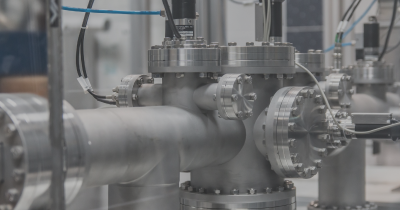What is a Smart Factory Business?
Smart Factory
A manufacturing facility that focuses on innovation in small and medium-sized manufacturing enterprises by integrating the entire process-planning, design, production, distribution, and sales-using Information and Communications Technologies (ICT). This integration allows for the production of customized products at minimal cost and time.
Smart Factory Business
A project led by the Ministry of SMEs and Startups, aimed at supporting manufacturing innovation for small and medium-sized enterprises (SMEs) and medium-sized companies. This initiative provides up to 50% funding support for various forms of smart factory advancements that are suitable for the domestic context.
To improve production processes, involves the implementation of smart factory solutions that apply advanced technologies such as IoT, 5G, big data, AI, and cloud computing. also supports the integration of automated equipment, controllers, and sensors that are linked with these solutions.
Need for Smart Factory Implementation
Smart Factory Stages
Smart factories are categorized into five stages based on the extent and capabilities of ICT technology utilization.
-
Advanced Stage
- Equipment, materials, and systems are connected via wireless and wired networks (IoT/CPS)
- Autonomous factory operations through intelligent equipment and systems that can make independent decisions
- Integrated operation of the entire manufacturing process
-
Intermediate Level 2
- Automatic control of equipment via management systems > Real-time production optimization
- Real-time linkage between management systems for different areas (development-production-resource management)
-
Intermediate Level 1
- Automatic aggregation of equipment information > Real-time factory operation monitoring, quality analysis
- Partial linkage between management systems for different areas (e.g., master data, engineering information, order information-production planning)
-
Basic Level
- Automatic aggregation of production performance information > Real-time tracking of material flow, lot tracking
- Partial operation of management systems (design, sales, inventory, accounting, etc.)
-
Non-ICT Applied
- Using Excel to some extent, lacking equipped systems
Expected Effects of Smart Factories
Production information and performance analysis data enable transparent management of the production site and reduction of production costs, ultimately providing an effect of significantly increased productivity
Reduction in Losses and Increased Profits
Cost Reduction of Simple Labor
Increased External Credibility
Improved Finished Product Quality
Final target system
Optimized MES System for SMEs
Ability to link with equipment system, sensor, and PLC

Implementation Cases
- 20201 Cases
- 20214 Cases
- 20233 Cases
-

Food Manufacturing Company G
- ProductGinseng Food
- SolutionAtlanMES
- Implementation2020
-

Steel Manufacturing Company A
- ProductSteel
- SolutionAtlanSCM
- Implementation2021
-

Food Manufacturing Company B
- Productbread, cake
- SolutionSmartHACCP
- Implementation2021
-

Liquor Manufacturing Company H
- ProductDistilled Spirit
- SolutionAtlanMES
- Implementation2021
-

Food Manufacturing Company F
- ProductSeasoned Meat, Pork Cutlet, Tteokgalbi, etc.
- SolutionAtlanMES
- Implementation2021
-

Liquor Manufacturing Company B
- ProductDistilled Spirit
- SolutionAtlanMES
- Implementation2023
-

Food Manufacturing Company H
- ProductFood (Meal Kits)
- SolutionAtlanMES
- Implementation2023
-

Pharmaceutical and Medical Device Manufacturing Company B
- ProductMedical Devices, Medical Products, etc.
- SolutionAtlanMES
- Implementation2023





